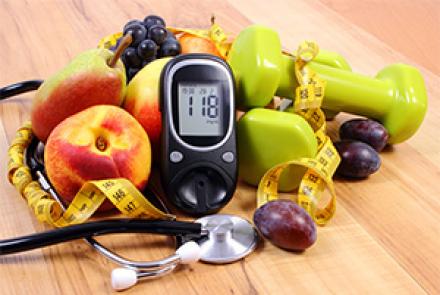
The constant barrage of tests for diabetes diagnosis and management can feel overwhelming. And new ones keep popping up. Dr. Shital Patel explains the role and utility of each of the tests
If you are living with diabetes, you have had a lot of blood tests, check-ups, and screenings. It can feel overwhelming trying to keep track of what all these tests mean and which ones are truly important for your health. You may often see new tests being added in testing packages or mentioned in news articles and wonder if you need them. In this article, we break down the must-have tests, the sometimes-needed ones, and a few that are more research-focused than practical..
The Most Important Tests You Should Take
These are the tests recommended by diabetes experts around the world. They help diagnose diabetes, monitor your blood sugar, and check for complications. These are the ones you really should not skip.
1. Fasting Blood Glucose
- What it does: Measures your blood sugar after not eating for 8–12 hours.
- Why it matters: Used to diagnose diabetes or prediabetes.
2. Oral Glucose Tolerance Test (OGTT)
- What it does: Measure how body reacts after drinking 75mg of glucose solution. Sugar levels are tested before and 2 hours after.
- Why it matters: More sensitive than fasting glucose or HbA1C, hence used to detect prediabetes, type 2 and gestational diabetes.
- How often: Every 3 years if you are at risk of diabetes. Every year if you are prediabetic. During pregnancy at 24-28weeks.
3. HbA1c (Haemoglobin A1c)
- What it does: Shows your average blood sugar over the past 2–3 months.
- Why it matters: Helps you and your doctor see how well your diabetes is being managed over time.
- How often: Every 3 to 6 months.
4. Self-Monitoring or Continuous Glucose Monitoring (CGM)
- What it does: Tracks your blood sugar throughout the day.
- Why it matters: Helps you understand how food, exercise, stress, sleep and medications affect your blood sugar levels in real time. More importantly gives a better understanding of time in range
- Who needs it: Anyone who needs more understanding of their sugar patterns & fluctuations, those with uncontrolled sugar levels and especially important for people on insulin. Highly recommended for persons with Type I Diabetes and gestational diabetes. Increasingly also being used effectively for short bursts for Type 2 diabetes to understand the factors that drive fluctuations especially hypos and hypers.
Read more on how to use CGM: https://www.patientsengage.com/conditions/should-i-use-continuous-gluco…
5. Kidney Function Tests
- What they do: Checks to detect early signs of Diabetic Nephropathy, a common complication of diabetes. Early detection can help prevent and delay kidney damage. Regular testing helps track the progression of kidney disease and the effectiveness of treatment.
- Tests include:
- Urine Albumin-to-Creatinine Ratio (UACR): This test measures the amount of albumin (a type of protein) and creatinine (a waste product) in your urine. Healthy kidneys keep albumin in the blood, so finding it in urine can signal kidney damage.
- Serum Creatinine: A waste product from muscle metabolism.
- eGFR: This blood test estimates how well your kidneys are filtering waste products from your blood. This is called the glomerular filtration rate. A low rate means the kidneys aren't working well.
- How often: For people with Type 1 diabetes, yearly testing should begin 5 years after diagnosis. For people with Type 2 diabetes, yearly testing should begin at the time of diagnosis.
6. Eye Exam
- What it does: Comprehensive dilated eye exams must be done for conditions caused by diabetes such as Diabetic retinopathy, Diabetic Macula Edema and Glaucoma. Helps to examine the retina, optic nerve and blood vessels in the eye for early detection.
- Why it matters: Diabetes can lead to vision loss if not caught early.
- How often: Yearly testing from the time of diagnosis. Women with gestational diabetes should check in the first three months of pregnancy, and again one year post delivery.
7. Foot Exam
- What it does: Checks for nerve damage (Peripheral neuropathy) or poor circulation in feet. Helps categorize feet as low, medium or high risk for developing complications.
- Tests should include:
- Visual inspection: Ask, look and feel steps for skin issues like dryness, nail health, calluses and infections (fungal).
- Neurological test: Using a microfilament to check for nerve damage.
- Musculoskeletal exam to check for any deformities (bent or overlapping toes, bunions etc.).
- Vascular test to assess blood flow. Check of pulses in your feet and comparison of both ankle blood pressure measurement. Pale or reddish areas and reduced hair growth can indicate poor blood circulation.
- Reflex test by using a hammer.
- Why it matters: Prevents serious foot problems, including ulcers, gangrene or even amputation.
- How often: At least once a year.
8. Cholesterol & Blood Pressure Checks
- Why they matter: Diabetes increases the risk of heart disease by elevating bad (LDL) cholesterol and triglycerides while lowering good (HDL) cholesterol, making these regular checks crucial for preventing heart attacks, strokes, and other complications.
- How often: Every doctor visit or at least once a year.
To read more about a schedule on Diabetes maintenance: https://www.patientsengage.com/conditions/diabetes-maintenance-schedule
9. Vitamin B12 and D3 Checks
- Why they matter: People who are no metformin are prone to these deficiencies. Vitamin B12 is essential for nerve health and deficiency can lead to peripheral neuropathy. Vitam D3 support bone health and low levels can increase insulin resistance and risk of foot ulcers.
- How often: At least once a year if you are on Metformin.
To read more about a schedule on Diabetes maintenance: https://www.patientsengage.com/conditions/diabetes-maintenance-schedule
Sometimes-Needed Tests
These tests are not required for everyone but may be prescribed and helpful in certain situations.
1. C-Peptide
- When used: At the time of diagnosis, if your doctor isn’t sure whether you have Type 1 or Type 2 diabetes.
- What it does: Shows how much insulin your body is making.
2. Autoantibody Tests
- When used: To confirm if someone has Type 1 diabetes or a slower-developing form called LADA (Latent Autoimmune Diabetes in Adults). LADA is often called 1.5 diabetes since it has features of both type 1 and 2. Correct diagnosis is important for treatment implications.
- What it does: In type 1 diabetes, there are 4 markers to check for beta cell autoimmunity viz. islet cell antibodies (ICA), antibodies to glutamic acid decarboxylase (GAD-65), insulin autoantibodies (IAA), and IA-2A.
3. Fructosamine or Glycated Albumin
- When used: If HbA1c results may be inaccurate (for example, during pregnancy or if you have anemia or a blood disorder.
4. Serum Insulin test
- What it does: To measure insulin production by the pancreas and how effectively the body uses it.
- When used: To distinguish between Type 1 and type 2 diabetes, evaluate insulin resistance, investigate cause of hypoglycemia and help diagnose rare insulin-secreting tumours (like insulinoma).
Tests You Can Probably Skip (For Now)
You may hear about new or “emerging” tests on the internet or in news articles. While these are exciting from a research point of view, they aren’t always useful in everyday care.
Here are a few examples:
- 1,5-Anhydroglucitol (1,5-AG): Looks at short-term sugar spikes, but not widely used in regular care.
- Advanced Glycation End Products (AGEs): Linked to long-term damage from high blood sugar, but mostly used in research.
- MicroRNAs, Metabolomic Panels, or Gut Microbiome Testing: These are still being studied. They are not part of routine diabetes care right now.
- Genetic Testing (like for MODY* or Type 2 risk genes): Only used in rare or special cases, such as in very young people with diabetes or with a strong family history. * MODY or Maturity-Onset Diabetes of the Young is a rare inherited type of diabetes.
- HOMA (Homeostatic Model Assessment) IR test: Useful for early detection when insulin resistance is suspected in people with high risk factors. Has limitations and is not recommended for screening in all individuals.
Talk to your doctor about whether you need any of the "sometimes" tests especially if your diagnosis is unclear or if your sugar levels are not coming under control or if your HbA1c doesn’t match how you feel. Managing diabetes is about more than just tracking blood sugar. It is about holistic care of your kidneys, eyes, heart, kidneys, nerves, and overall well-being. The good news is that you do not need every test out there. Stick with the proven ones that help you and your care team make smart decisions. If you’re ever unsure about a test or what it means, ask your diabetologist or endocrinologist. There’s no such thing as a silly question. It is best to stay informed.
To better understand what some of the terms mentioned here mean, have a look at our Glossary on Diabetes: https://www.patientsengage.com/conditions/diabetes-terms-explained
References:
- Poudel RR. Latent autoimmune diabetes of adults: From oral hypoglycemic agents to early insulin. Indian J Endocrinol Metab. 2012 Mar;16 Suppl 1(Suppl1):S41-6. doi: 10.4103/2230-8210.94257. PMID: 22701843; PMCID: PMC3354922.
- Cleveland Clinic: https://my.clevelandclinic.org/health/diagnostics/21659-kidney-function…
- MedlinePlus Diabetes Eye Exams: https://medlineplus.gov/ency/patientinstructions/000323.htm
- Optometrist Network: https://www.optometrists.org/general-practice-optometry/guide-to-eye-co…
- American Heart Association: https://www.heart.org/en/health-topics/diabetes/diabetes-complications-…
- ADA: https://diabetes.org/food-nutrition/diabetes-vitamins-supplements/low-v…
- https://www.hopkinsguides.com/hopkins/view/Johns_Hopkins_Diabetes_Guide…
















